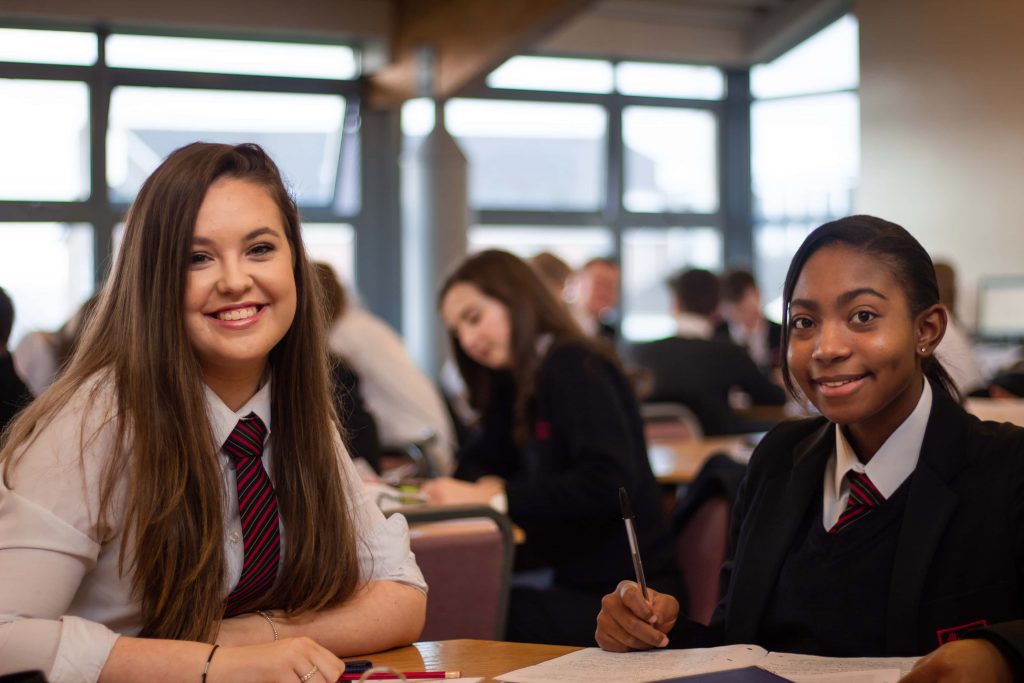
Though Ballymena Academy is a large modern school, it is friendly and caring. If a pupil is anxious or in difficulty someone will help: Peer Mentors, Classroom Teacher, Form Tutor, Pastoral Advisor, the Head of Year, School Nurse, School Counsellor, Pastoral Vice-Principal.
Parents
Parents are key pastoral care partners. They are strongly encouraged to contact the school if in any way concerned about their child’s well-being: for example, about bullying, or anxiety about the impact of a pupil’s workload or other factors outside school which may be affecting their child psychologically or physically.
Pastoral issues are discreetly and sensitively addressed in the context of both school situations and broader health, personal and social circumstances.
All Teachers share in Pastoral Care. They provide a safe environment in which pupils can grow. They set behavioural standards and have clear expectations. They are demanding – but fair.
Our Pastoral Care Programmes exhort pupils:
- to be respectful and considerate
- to show emotional intelligence in their dealings with others
- to demonstrate self-discipline in school and in life
Positive and Enabling Discipline
In keeping with our positive ethos and the good relationships which characterise our school, we encourage children and young people to act responsibly and with respect for others.
Rules and regulations are kept to a minimum, clearly stated and published to pupils and parents.
Special Education Needs [SENco]
The Special Educational Needs Co-ordinator ensures that in co-operation with NEELB personnel, the special requirements and learning needs of identified pupils are appropriately addressed. This is done through individualised support programmes devised by classroom teachers, Heads of Subjects, Literacy and Numeracy co-ordinators.
Pastoral Care Programme
- provides induction information for all ‘new’ pupils
- provides daily support: Class Teachers, Form Tutors, Pastoral Advisors, Heads of Year, Peer Mentors
- fosters self-discipline through Tutor Programmes, Assemblies, Codes of Conduct
- strives to eradicate bullying through education, support and care
- influences attitudes and behaviours through PSHE
- avails of external support – e.g. the Counselling Service in times of difficulty or trauma
- provides an enriching co-curricular programme throughout the year
- facilitates parental contact: Open Nights, Information Evenings, Interviews, Reports
- provides parents with Pastoral Care policies: e.g. Child Protection, anti-Bullying
Pastoral Care System
- Heads of Year co-ordinate the work of Form Tutors
- Pastoral Advisors liaise with Pastoral, Vice-Principal, Heads of Year and Tutors
- Pastoral Advisors support pupils and link with class teachers and parents
- The Pastoral Vice-Principal meets with Heads of Year, Pastoral Advisors
- The Pastoral Vice-Principal supports and sustains each Pastoral Team
- Designated Staff support on matters of Child Protection
- A school Care Team liaises with outside Agencies
- Staff help pupils to develop their self-management and organisational skills
- A professional Counsellor is available for pupil consultation
- Helplines and Counselling Services contact details are displayed on Advice Boards
- The School Nurse and School First Aid Team respond to health or injury concerns
Attendance
Excellent standards of attendance and exceptional exam averages bear out the high correlation between attendance and achieving full academic and personal potential. In partnership with parents, the school encourages full attendance and punctuality.
Pupil Representation
- Pupils’ representatives contribute to improvements in teaching and learning, pupil welfare, school meals, co-curricular experiences.
- Pupil Representatives are elected annually.
- Junior, Middle and Senior School Councils channel pupils’ views to Heads of Year.
- Pupil opinions are also elicited through questionnaires.
